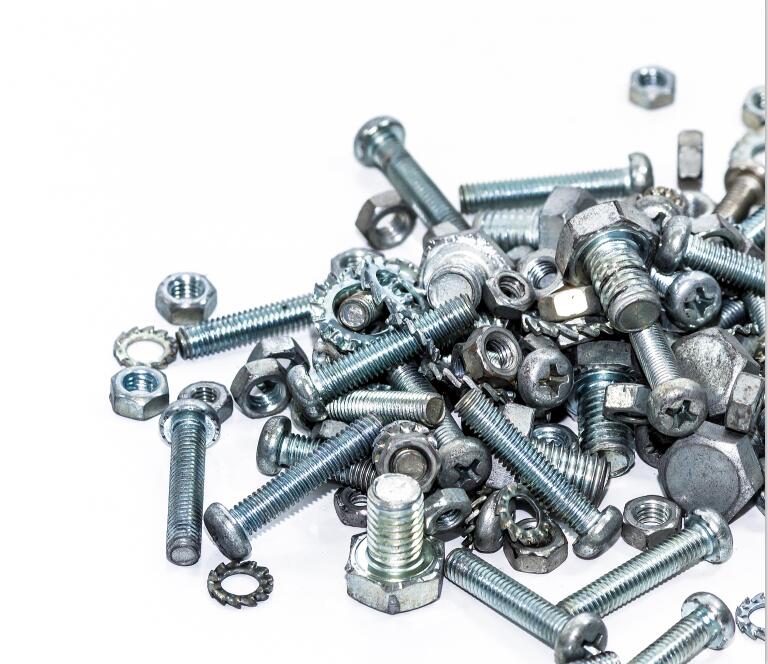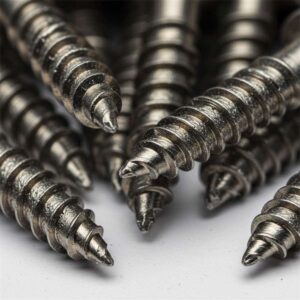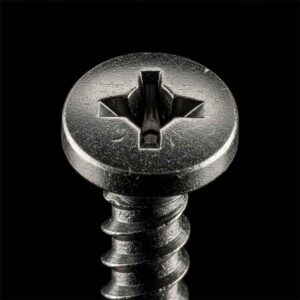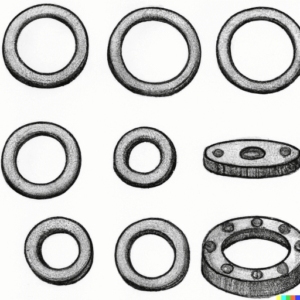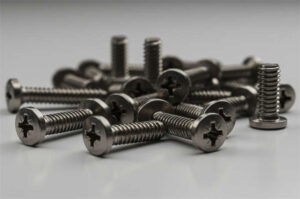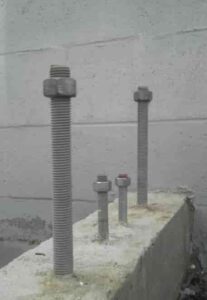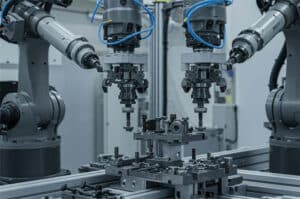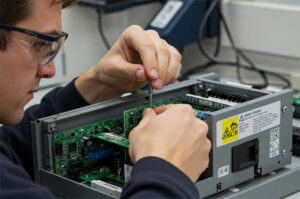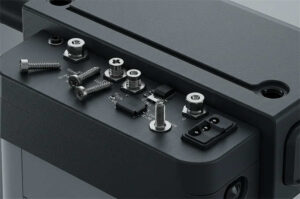Exploring Different Types of Industrial Fasteners and Their Uses
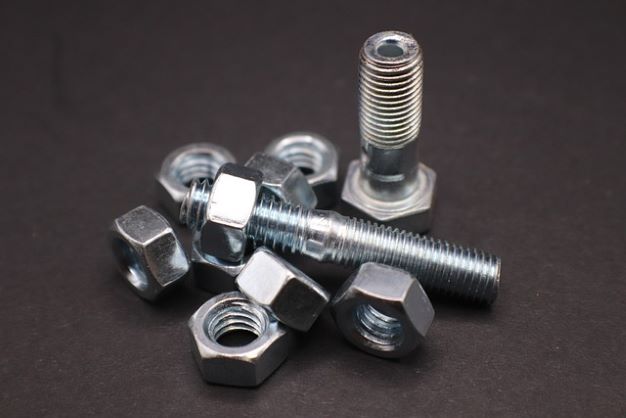
Types of Industrial Fasteners
The fastener industry and its continuous support of worldwide development and innovation have consistently provided various solutions. Today, there are thousands of fastener types to choose from for general applications to hybrid assemblies. Here are some of the most common industrial fastener types and their classifications:
Bolts
An externally threaded fastener with various types of heads and sizes, bolts are used in assemblies to connect and tighten two or more materials together. They are also matched with nuts and cannot function without the other.
Hex Bolts – The most common type of bolt used in many industrial and mechanical applications is hex bolts. This fastener has six sides or a hexagonal head which comes in various sizes, materials, designs, and coatings.
Carriage Bolts – From traditional carriages, carriage bolts got their name from their essential role of securing their connections. It has a dome-shaped head that can cover the surface hole from dust as well as protect the inside from moisture and leaking.
Lag Bolts – Also known as lag screws ideally for heavy-duty applications with intense load-bearing materials like lumber. Lag bolts are one of the toughest fasteners for industrial applications, especially in construction and infrastructure.
Read More: What Are the Basic Types of Bolts
Screws
In general connections such as household projects or furniture making screws give the most important role of stability and reliability. Unlike bolts, screws have sharp tips that are used in penetrating materials and creating a thread that can help strengthen their hold during use.
Wood Screws – Often used for woodworking, wood screws are known for their strong and unmatched quality in industrial fastening. They have good compatibility that resists corrosion and versatility. Wood screws are also ideal for DIY projects in household connections such as shelving, decking, window frames, and more.
Machine Screws – Machinery, electrical devices, and appliances are some of the applications used for machine screws. These devices can be confused with bolts as they have a similar end/tip. Yet machine screws remain to be considered as fastener screw types
Self-Tapping Screws – This fastener can be classified as a type of wood screw because of its usual use in woodworking. Self-tapping screws got its name from its ability to tap into materials without the need of using a drilling tool.
Drywall Screws –Household and construction fastening such as attaching drywall require special features that drywall screws can employ. They can easily penetrate the surface of plasterboard or drywall panels and protect the materials from corrosion.
Nuts
This type of industrial fastener is known for its unique shape from all other threaded fasteners, nuts are used in conjunction with screws and bolts. They have an internal threading that is inserted into bolts for tightening and to prevent loosening of parts.
Hex Nuts – The most common and popular type of nuts are hex nuts, they have six sides or hexagonal heads that can be turned using wrench tools.
Lock Nuts – Some applications with the need for anti-tampering systems can require lock nuts. Lock nuts can tighten devices to prevent loosening from constant vibrations and can only be removed with a special tool or key.
Wing Nuts – A type of nut that has a pair of projecting wings or fingers on its sides thus its name wing nuts. They can be easily installed into bolts and can be removed with ease.
Washers
A unique device that is added to assemblies and industrial fastening are various types and sizes of washers. Washers have a round disc shape with a hole in the middle. They are used for controlling load distribution and preventing fastener failure in some forms.
Flat Washers – Also known as plain washers, flat washers are used to spread the load in materials and reduce friction during the process of tightening.
Spring Washers – This type of washer is known to be a locking washer which is used for preventing gradual loosening due to vibrations. Spring washers can eliminate rattle and maintain assembly tension to control the vibrations and load received in assemblies.
Lock Washers – A special type of washer that creates tension to prevent the loosening of bolts. Lock washers are designed to provide a locking effect and are used in applications that often have vibrations or movements.
Rivets
Permanent fastening has been an easier task with the help of appropriate tools and devices like rivets. They are considered to be very durable and strong components that usually involve custom specifications to suit the demands of their applications. Rivets can be identified by their head type and special end that creates the permanent fastening when installed using a force.
Solid Rivets – Known for their reliable fastening, solid rivets consist of a shaft and head that gets deformed once inserted with the use of rivet guns.
Blind Rivets – This fastener is used for applications with no access (blind) or view of the rear joint thus named blind rivets.
Drive Rivets – This is a type of blind rivet that consists of a short mandrel protruding from the head. Drive rivets are used for fixing sheets, moldings, angles, coatings, or insulation in the construction industry.
Purchase Here: Customized Metal Rivets
Applications of Industrial Fasteners in Different Industries and Sectors
Construction
One of the leading industries with large demands for industrial fasteners is construction and its various sectors such as structural and interior applications. Here are some examples of where they provide structural integrity and security of connections:
Structural Applications – Most applications like bridges, building construction, connecting metal beams, etc. need strong fasteners. Fastener materials like steel are the most suitable for employing strength, durability, and security in the field.
Interior Applications – In the construction industry, most interior applications require a different feature such as aesthetics or decorative visuals. Some examples include shelving, window frames, drywall installation, flooring, and more. These applications often need non-protruding fastener heads like countersunk screws which rest flush in materials creating a smooth surface and aesthetic details.
Automotive
Engine Components – Automotive engine parts are physically secured into other components with the help of industrial fasteners like screws, bolts, nuts, and washers. They secure engine valves, motors, electrical systems, and others.
Body Assembly – The overall component that completes vehicles is their body, its assembly requires stability and reliable industrial fasteners. As they are placed in various connections throughout the entire body, they maintain and keep the technical parts safe from direct UV, water, and dust which can cause corrosion.
Read More: Safety of Automotive Fasteners and The Latest Advancements for Durability
Electronics
The electrical industry and manufacturing have a wide demand for fastening devices that withstand the common challenges in its sector such as electrical conduction, and corrosion.
Circuit Boards – Circuit boards play an important role in electrical devices thus they should be protected from dust and any liquid. It requires corrosion-resistant and non-conductive fasteners to perform a smooth system.
Enclosures – Electrical enclosures pose a danger from tampering and safety, thus making sure they are equipped with the right precautions and proper connectivity, fasteners made of stainless steel, aluminum, and plastic can be the perfect devices for their connections.
Aerospace
The aerospace industry has numerous applications for fasteners from aircraft vehicles to spacecraft equipment. With the fluctuating weather conditions and varying environmental changes, aerospace fasteners require critical features that can withstand corrosion with limited weight.
Aircraft Assembly – Fasteners used in aircraft require special qualities that can withstand the conditions and challenges of environmental changes. The use of industrial fasteners like bolts, nuts, springs, and washers in aerospace provides security and reliability in the overall functions. Aircraft industrial fasteners are expected to be lightweight, durable, and corrosion-resistant.
Spacecraft Components – Spacecraft components such as engines, power subsystems, communications, and more are all essential parts that need precision and high-quality materials. Fasteners used in these components are often made of aluminum or aluminum composite because of their lightweight and sturdy features, titanium fasteners also employ a strong and durable performance in connections and joints.
Choosing the Right Industrial Fastener for Your Projects
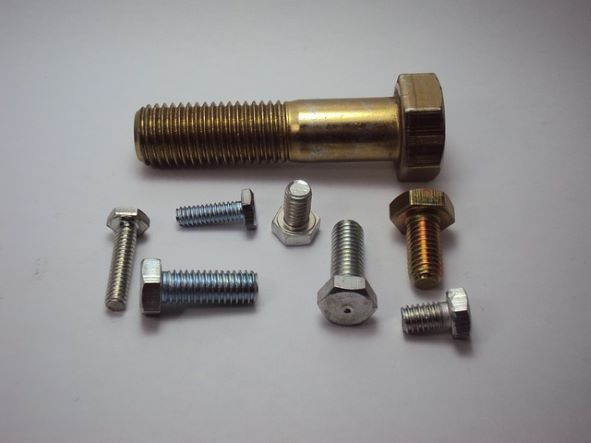
Factors to Consider in Industrial Fastening
Material Compatibility – Several industrial fastener material types can have compatibility issues during use. Thus, knowing what
Load Requirements – Commonly present in automotive, construction, military, and aerospace industries, load requirements in fasteners are a crucial factor that results in successful assemblies. This is common for heavy-duty construction, bridges, trucks, and machinery as
Environmental Conditions – Some of the common conditions and challenges within fastening assemblies can be due to environmental elements. They can affect and influence the durability of industrial fasteners when overlooked before deciding what type of fastener to employ. Having a fastener with corrosion resistance and coatings can eliminate corrosion and protect them from environmental conditions like heat, moisture, chemicals, etc.
Purchase high-quality customized fasteners from a reliable industrial fastener company.
Visit Prince Fastener Manufacturing Co., Ltd.
Common Mistakes to Avoid in Using Fasteners
Over-tightening – Most fastener failures in industrial assemblies can be caused by over-tightening and improper installation of fasteners. This is commonly encountered when screws or bolts are drilled way over the limit which in some cases results in cracking and splitting of materials and damaging them permanently. To avoid over-tightening of industrial fasteners you may use powered tools and set the torque or simply drive manual tools with control to prevent splitting.
Using the Wrong Material – This is one of the simple mistakes that can be prevented by doing research about fastening and knowing the disadvantages of industrial fasteners. Using the wrong fastener materials on surfaces can result in galvanic corrosion and fastener failure. It is important to know the compatibility of fasteners in surface applications to prevent chemical reactions that can gradually damage the assembly.
Read More: Avoid These Common Mistakes with Fasteners
